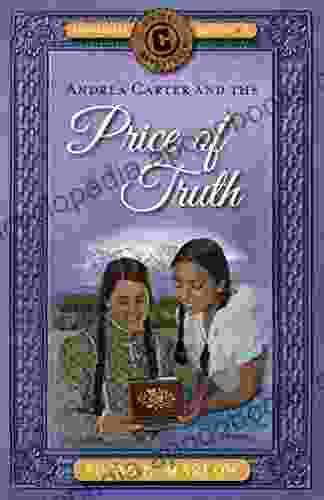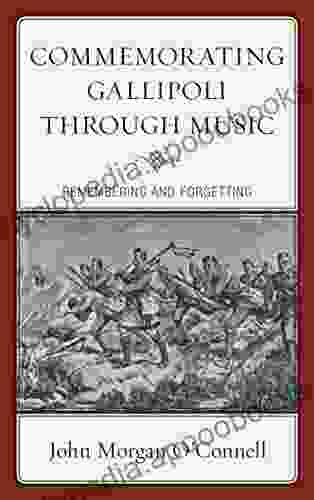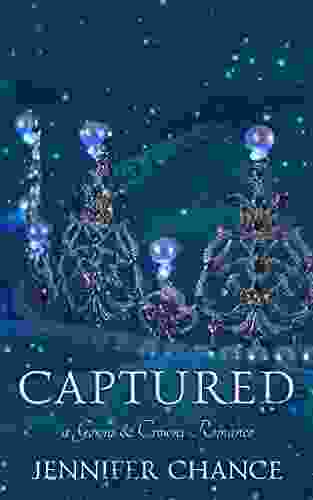Remembering and Forgetting: The Power of Music in Commemorating Gallipoli

4.9 out of 5
| Language | : | English |
| File size | : | 5137 KB |
| Text-to-Speech | : | Enabled |
| Enhanced typesetting | : | Enabled |
| Print length | : | 333 pages |
| Screen Reader | : | Supported |
The Battle of Gallipoli, fought during World War I, has been extensively commemorated through various forms of art and media, including music. This article explores the role of music in shaping collective memory and remembrance of the Gallipoli campaign, examining how it can both preserve memories and influence how we remember and forget.
Music as a Memorial
Music has played a significant role in memorializing the Battle of Gallipoli. The haunting melodies and evocative lyrics of songs like "The ANZACs" by Eric Bogle and "Gallipoli" by John Schumann have become synonymous with the campaign, serving as poignant reminders of the sacrifices made by soldiers on both sides.
These songs have become part of the cultural fabric of Australia and New Zealand, often performed at commemorative events and ceremonies. By incorporating these songs into our collective rituals of remembrance, we perpetuate the memory of Gallipoli and ensure that the sacrifices of those who fought and died are not forgotten.
Music as a Shaping Force
While music can serve as a memorial, it also has the power to shape our understanding of history. By highlighting certain aspects of the Gallipoli campaign and downplaying others, music can influence how we perceive the event.
For example, many popular songs about Gallipoli focus on the heroism and sacrifice of the ANZAC troops. While this is an important aspect of the campaign, it can overshadow other perspectives, such as the experiences of the Turkish soldiers or the impact on the local population. Music, therefore, has the potential to perpetuate a partial and potentially biased view of history.
Music as a Catalyst for Forgetting
Music can also contribute to forgetting. As new songs and musical interpretations emerge, older ones may fade into obscurity. This can lead to a gradual erosion of memory, as certain aspects of the Gallipoli campaign are no longer recalled or remembered.
Additionally, the focus on popular and emotionally evocative songs can overshadow the role of more challenging or critical works of music that explore the complexities of the Gallipoli campaign. This can result in a sanitized and simplified understanding of the event that fails to acknowledge the full range of experiences and perspectives.
The Future of Gallipoli Commemoration
As we approach the centenary of the Battle of Gallipoli, it is important to reflect on the role of music in commemorating this significant event. While music has played a vital role in preserving memories and shaping collective remembrance, it is also essential to be aware of its potential to influence and even distort our understanding of history.
In the future, it will be crucial to ensure that our commemorations of Gallipoli are inclusive, diverse, and critically engaged. Music can continue to play a powerful role in these commemorations, but it must be used responsibly and thoughtfully to promote a comprehensive and nuanced understanding of the Gallipoli campaign and its legacy.
Music is a powerful tool for commemorating historical events such as the Battle of Gallipoli. It can preserve memories, shape our understanding of history, and even contribute to forgetting. As we continue to commemorate Gallipoli, it is important to be aware of the potential of music to both remember and forget, and to use it responsibly and thoughtfully to ensure a comprehensive and nuanced understanding of this significant event.
4.9 out of 5
| Language | : | English |
| File size | : | 5137 KB |
| Text-to-Speech | : | Enabled |
| Enhanced typesetting | : | Enabled |
| Print length | : | 333 pages |
| Screen Reader | : | Supported |
Do you want to contribute by writing guest posts on this blog?
Please contact us and send us a resume of previous articles that you have written.
 Book
Book Novel
Novel Page
Page Chapter
Chapter Text
Text Story
Story Genre
Genre Reader
Reader Library
Library Paperback
Paperback E-book
E-book Magazine
Magazine Newspaper
Newspaper Paragraph
Paragraph Sentence
Sentence Bookmark
Bookmark Shelf
Shelf Glossary
Glossary Bibliography
Bibliography Foreword
Foreword Preface
Preface Synopsis
Synopsis Annotation
Annotation Footnote
Footnote Manuscript
Manuscript Scroll
Scroll Codex
Codex Tome
Tome Bestseller
Bestseller Classics
Classics Library card
Library card Narrative
Narrative Biography
Biography Autobiography
Autobiography Memoir
Memoir Reference
Reference Encyclopedia
Encyclopedia Steve Lanham
Steve Lanham Cat Porter
Cat Porter Scott Burnham
Scott Burnham Nicole Wilde
Nicole Wilde Sherman Lewis
Sherman Lewis Joseph S Walker
Joseph S Walker Bret Anthony Johnston
Bret Anthony Johnston Edward Dyson
Edward Dyson Charles Kane
Charles Kane Polly Jones
Polly Jones Noel Hankin
Noel Hankin Graham Bell
Graham Bell J B Cantwell
J B Cantwell Lee Durkee
Lee Durkee Livell James
Livell James Patricia Marques
Patricia Marques F P Spirit
F P Spirit Leanna S Harris
Leanna S Harris David Black
David Black Ioannis T
Ioannis T
Light bulbAdvertise smarter! Our strategic ad space ensures maximum exposure. Reserve your spot today!

 Edward ReedUnlocking the Secrets of Intra-Articular Allied Injections: A Comprehensive...
Edward ReedUnlocking the Secrets of Intra-Articular Allied Injections: A Comprehensive... Griffin MitchellFollow ·2.7k
Griffin MitchellFollow ·2.7k Eliot FosterFollow ·4.4k
Eliot FosterFollow ·4.4k Jerry WardFollow ·4.2k
Jerry WardFollow ·4.2k Marvin HayesFollow ·3.8k
Marvin HayesFollow ·3.8k Kenzaburō ŌeFollow ·14k
Kenzaburō ŌeFollow ·14k Christian CarterFollow ·19.7k
Christian CarterFollow ·19.7k Percy Bysshe ShelleyFollow ·4.9k
Percy Bysshe ShelleyFollow ·4.9k Yukio MishimaFollow ·7.6k
Yukio MishimaFollow ·7.6k

 Jacob Hayes
Jacob HayesUnlock the Power of Microsoft Word: A Comprehensive Guide...
Microsoft Word is a widely used word...

 Hunter Mitchell
Hunter MitchellAndrea Carter and the Price of Truth: A Thrilling...
Get ready for an unforgettable...

 Ivan Turner
Ivan TurnerTrading Jeff and His Dog: An Unforgettable Adventure of...
Get ready for an emotional rollercoaster...

 Langston Hughes
Langston HughesGo Viral TikTok: The Ultimate Guide to Gaining 100K...
TikTok has emerged as a social...

 Ibrahim Blair
Ibrahim BlairUnveil the Enchanting Realm of Short Fiction: Dive into...
Delve into a Literary Tapestry of...

 Tennessee Williams
Tennessee WilliamsUnveil the Enchanting World of Elizabeth Barrett...
A Poetic Tapestry of Love, Loss, and...
4.9 out of 5
| Language | : | English |
| File size | : | 5137 KB |
| Text-to-Speech | : | Enabled |
| Enhanced typesetting | : | Enabled |
| Print length | : | 333 pages |
| Screen Reader | : | Supported |










